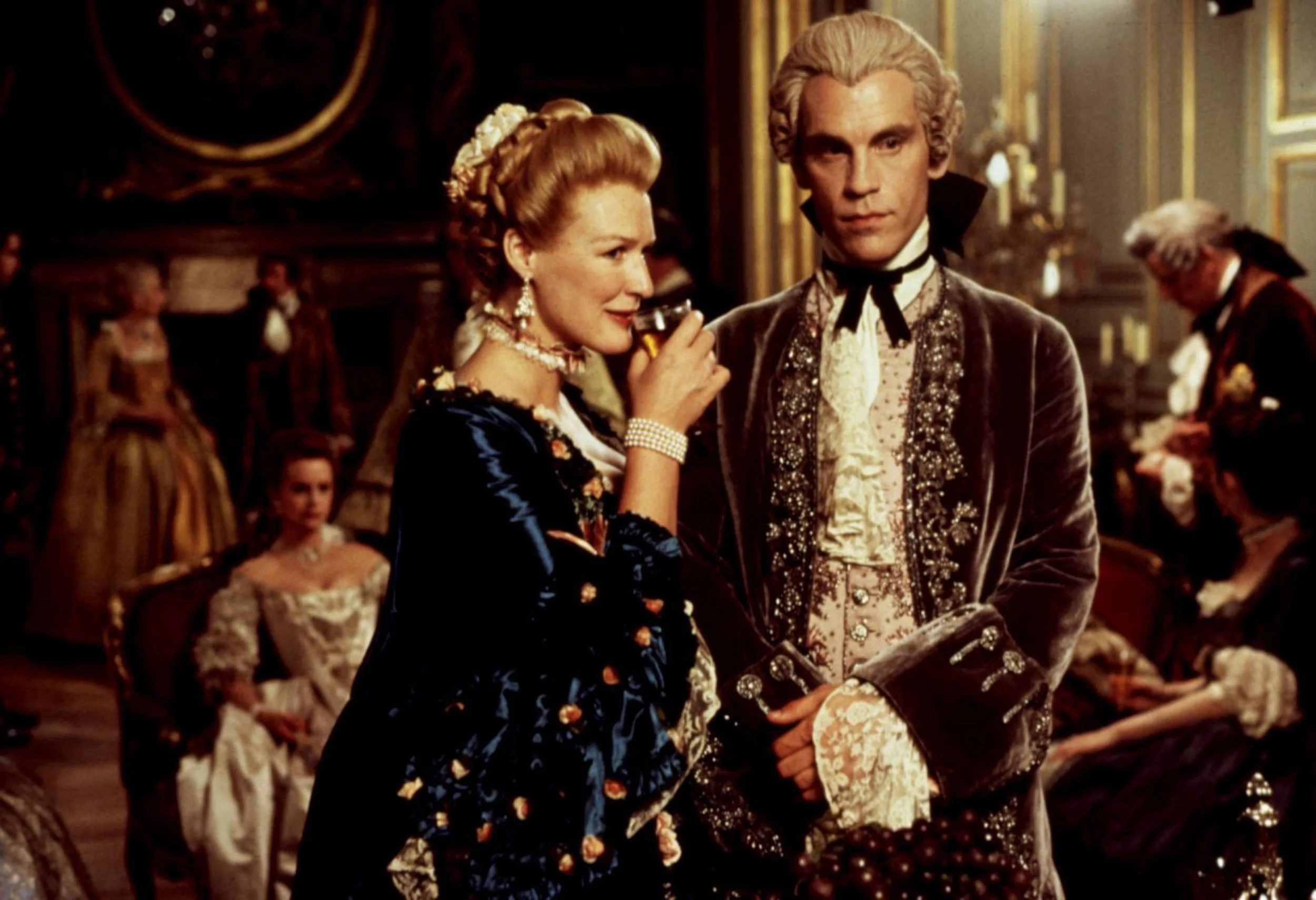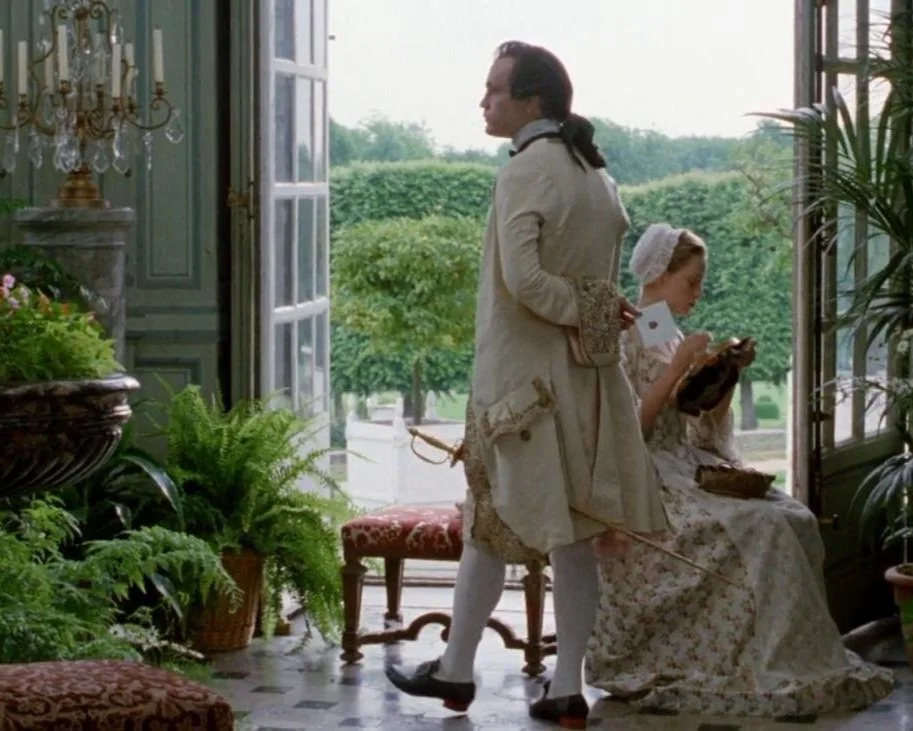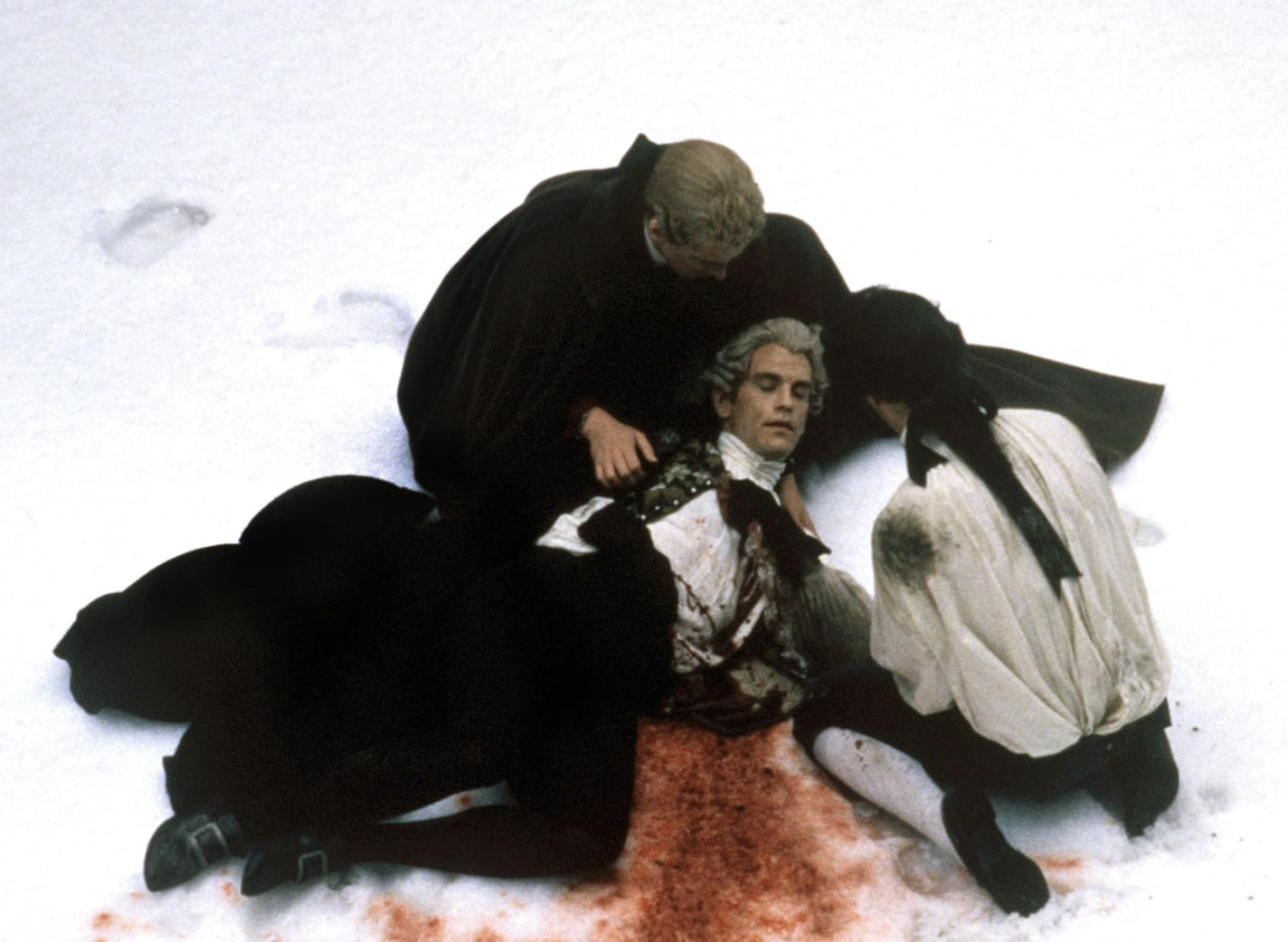Review: Dangerous Liaisons
Throughout the course of modern civilization, where monarchies and strict social class structures prevailed, to achieve the upper echelons of society there was one prerequisite: a strong lineage that was wealthy as well. Perhaps due to human nature’s incessant desire for explanation, many posited that those elite members deserved their higher statuses due to their possession of favorable traits. Set in 18th-century Pre-Revolution France, Stephen Frear’s Dangerous Liaisons explores an endeavor undertaken by a certain corrupt pair of aristocrats and showcases how their lives fueled by lust, manipulation, and the destruction of sanctity are anything but substantive.
In an objectionable game held by Vicomte de Valmont, played by John Malkovich, and the Marquise de Merteuil, played by Glenn Close, the two ex-lovers test one another’s stomachs for tactically-pursued sexual relations. The contest is initiated when the Marquise requests the Vicomte to seduce a young lady, Cecile, who is arranged to be married to one of the Marquise’s former partners. She wishes the Vicomte to take Cecile’s virginity in order to harm her former partner.
It’s suggested that this setup is one of many proposed by the Marquise. The Vicomte himself is no better, a professional conspirator who often boasts about his feats in success with women. The lives of both these characters are completely engulfed by this process of scouting innocent prospects to latch their claws of corruption upon. The two clearly have feelings for one another, mainly due to their shared affinity for destruction, and the reward for the Vicomte’s ostensible forthcoming success would be a night shared between the two puppeteers.
The Vicomte agrees to the challenge. Cecile will be staying at his Aunt’s estate in the countryside, along with another character of interest, Madame de Tourvel. The Vicomte is particularly attracted to Tourvel due to her pious nature and outright commitment to her husband, yet it is by using these very traits in his favor that he wishes to win her over.
The Vicomte, whilst taking daily walks through the lush, precisely trimmed gardens of his Aunt’s garden, confesses to Tourvel of his past transgressions, but consistently pleads that he desires to become more spiritual.
Madame de Tourvel initially rejects the Vicomte furiously, writing him off as decadent, and is unyielding in her stance that she wants the Vicomte to leave. In the meantime, the Vicomte is successful with Cecile, but instructs her to follow her heart and pursue a relationship with her piano instructor, Eventually, through intensive pathos, the Vicomte and Madame de Tourvel form a relationship. The scariest element of this, and the most unsuspecting, is that the Vicomte genuinely does fall in love with the Madame de Tourvel. His inner desires and legitimate feelings are so contrary to his outwardly expressed brand of the unstoppable courter that he fights this expression of love with all his power.
The Marquise, jealous that the Vicomte has found someone else that he actually has feelings for, mocks him and insults his character, claiming that he has forgotten what he stands for. This motivates the Vicomte to end relations with Madame de Tourvel. This sets off a string of events that includes Madame de Tourvel dying from an illness presumably set off by her sadness, and the Vicomte allowing himself to be stabbed to death in a swordfight. His last wish was to have all the letters of communication between him and the Marquise mass-published in order to bring her public shame.
A vicious cycle of sex inspiring more sex, without any basis of personal connection, is perpetrated throughout this film, but it also serves as a commentary on the elites within any society. In the backdrop of these futile games were the masses of France, poor and starving, on the brink of revolution.
This film speaks to the inconsiderate characteristics of the ruling classes, and cutting even deeper, how their status is nothing more than chance. No great skill, knowledge, or achievement brought these people into power.
Applied to the modern day, many questions arise regarding the continued nature of this system. How many people, be they celebrities, politicians, business people, or more, are given weight and gravity for an arbitrary reason such as beauty or opulence? How does manipulation, whether sexual, emotional, or financial still exist and solely serve the purpose of entertainment for cynical beings? Dangerous Liaisons begs the viewer to contemplate upon the essence of power and sadism within society and how the ennui of the elite motivates immorality.



